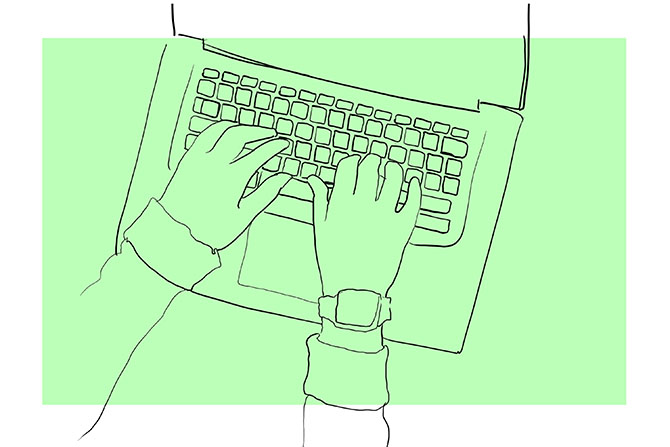Need a COVID-19 Stimulus Check but Don’t File Taxes? Here’s What to Do
by Susannah McQuitty

You got this—all you have to do is start!
We make filing taxes delightfully simple with one, flat–rate price. Every feature included for everyone.
Start filing
Updated September 17, 2020
The CARES Act brought with it some precious good news in light of the Coronavirus pandemic—especially with the announcement of Economic Impact Payments (also referred to as stimulus payments) for the vast majority of American taxpayers.
The IRS announced that most people would receive their payments without having to take action. Anyone who has filed their tax return in 2018 or 2019 will receive payment automatically by direct deposit or check, based on how they choose to receive their refund, with a few exceptions.
But what about everyone else?
What if I didn’t file for the past two years, but should have?
If you earned enough income in 2018 and 2019 to meet the tax filing requirement but didn’t actually file a return, the IRS urges you to file those returns—at least one of them—as soon as possible in order to “register” for your stimulus payment. Many who haven’t filed are actually owed refunds, which means more money in your wallet; if you owe tax on those returns, there are relief-oriented steps you can take to manage your debt.
How will senior citizens get their stimulus checks?
Simple: Senior citizens who receive Social Security, survivor benefits, or railroad retirement benefits won’t need to take action, and neither will Social Security Disability Insurance (SSDI) recipients.
The IRS will use the information from official reporting forms, such as your Form SSA-1099 or Form RRB-1099, to send your Economic Impact Payment, so you don’t have to lift a finger unless you have a child dependent—more on claiming the extra $500 per child below.
If I receive benefits through the Supplemental Security Income (SSI) program or Veterans Administration (VA), do I automatically receive a stimulus payment?
Yes—if you receive SSI or VA benefits, you will not have to take action unless you need to claim a child dependent. More on that next.
What should low-income taxpayers, seniors without Social Security, and others who aren’t required to file do to get a stimulus check?
While the vast majority of taxpayers won’t have to take action, there are still many who aren’t required to file taxes and don’t receive benefits through the government programs described above. In that case, the IRS has launched the Non-Filers: Enter Payment Info tool where you can register for your Economic Impact Payment.
You can also use 1040.com to file a simple return as well—just make sure you select the Economic Impact Payment portal (or EIP portal) as soon as you sign up or log in. Since these simple returns are only for those who need to claim a stimulus payment due to the COVID-19 pandemic, filers can use the 1040.com Coronavirus service at no cost—just our way of doing our part.
It’s important to know that this portal is only for those that meet the criteria specified; it is not an alternative to filing your actual tax return if you are required to do so.
What about recipients of Social Security, Railroad Retirement, survivor benefits, SSI, SSDI, or Veterans benefits who have qualifying children?
You must act fast to get the extra $500 stimulus payment per child as part of your initial payment. SS, RR, and SSDI recipients must act before Wednesday, April 22 at noon Eastern time; SSI and VA recipients have until May 5 because because their payments won’t go out until later.
Those who used the Non-Filers tool by the deadline to provide information about any qualifying children, but did not get the additional $500 payment together with their initial EIP, will be paid in early August.
If you receive government benefits, aren’t required to file a tax return, and never received the additional $500 per qualifying child, use the Non-Filers: Enter Payment Info tool to update your information. SS, SSI, RR, and VA recipients must act before Wednesday, September 30 to receive their additional payment in October.
It is unclear whether SSDI recipients could qualify for this window to update their information, but it doesn’t hurt to try—at the end of the day, you should receive your additional $500 when you receive your refund in 2021 if you don’t get it sooner.
Stay safe, stay informed
Want to stay in the loop? We’re keeping our Coronavirus news page up and running for any tax and stimulus-related information you need. We hope you and yours are healthy—eventually, we’ll make it through together.
Sign up for more of this.
Subscribe to our blog for year–round finance strategies and tax tips. We’re here to remove the dread from filing taxes.









